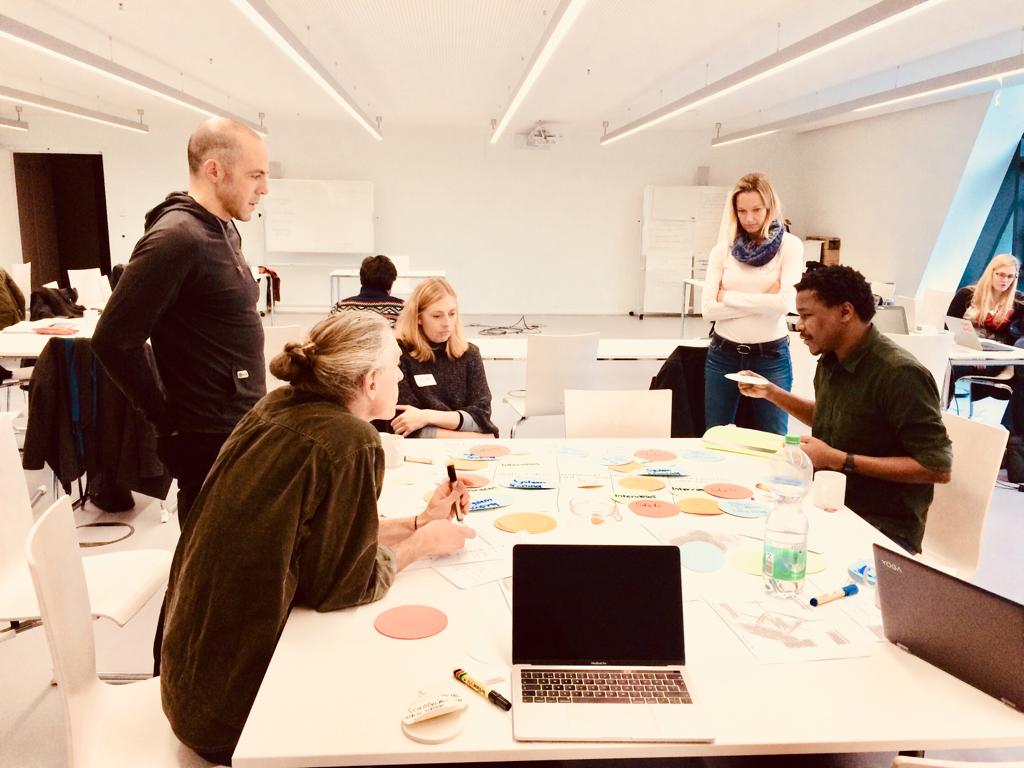Social-ecological systems (SES) research is a young field of study and is highly interdisciplinary, drawing on ideas and methods from multiple disciplines (e.g., ecology, social science, mathematics, economics, political science etc). It can therefore be quite overwhelming for a student to know which methods best suit their research question.
Together with collaborators at Rhodes University and the Stockholm Resilience Centre, the Centre for Complex Systems in Transition is compiling a guide to help students and researchers navigate the methods for studying SES. The guide will include about 30 chapters, each detailing a method used in SES research (such as participatory data collection, agent-based modelling, network analysis).
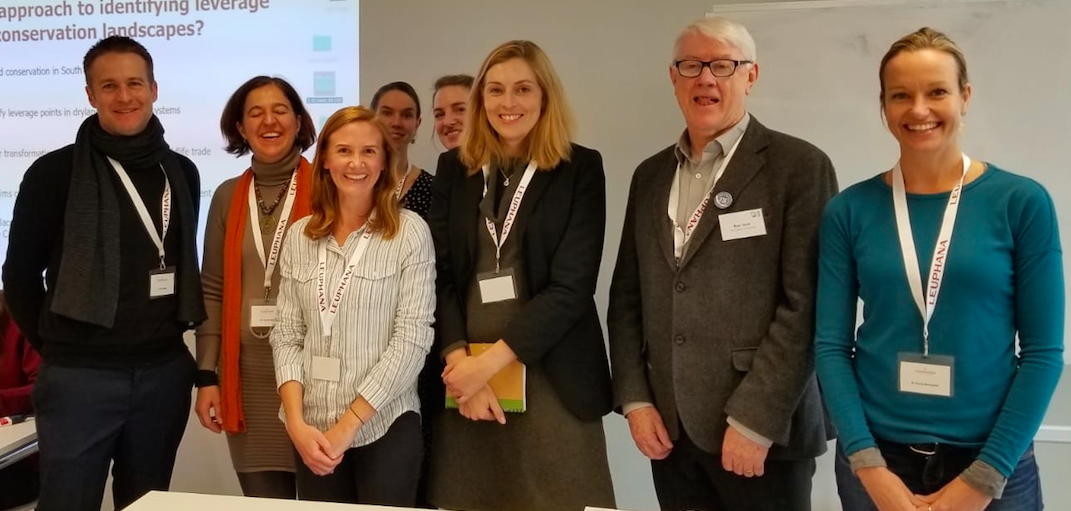
Earlier this month, CST researchers hosted a workshop in the beautiful (and chilly) town of Luneburg, Germany, which was attended by authors from the guide chapters, who are each experts in a certain method. We spent two days discussing how to fine-tune the guide, as well as harnessing the incredible expertise in the room to think about key challenges and ways forward for SES methods. The workshop was attended by 24 researchers from nine countries.
It is hoped that the Guide will be published in 2020.
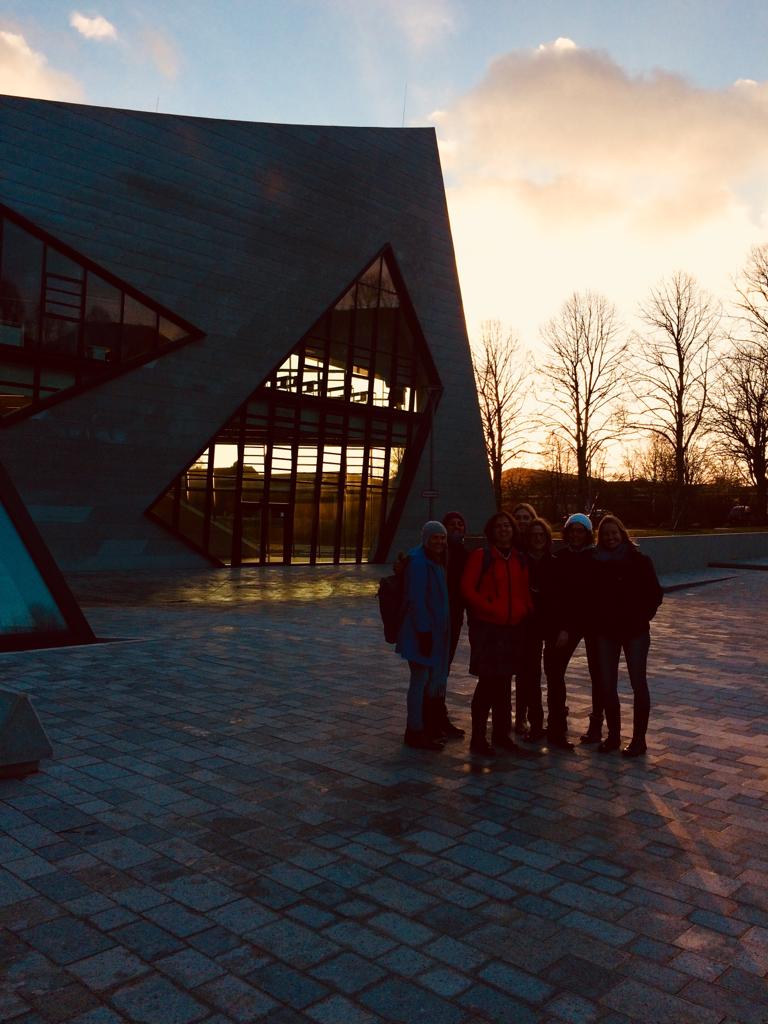
Editorial Team in front of the Leuphana University Central Building.

The Central Building of Leuphana University is an architectural milestone towards a campus, which will be setting new standards for the future. It offers space for research, teaching, student work, and academic and cultural exchange.
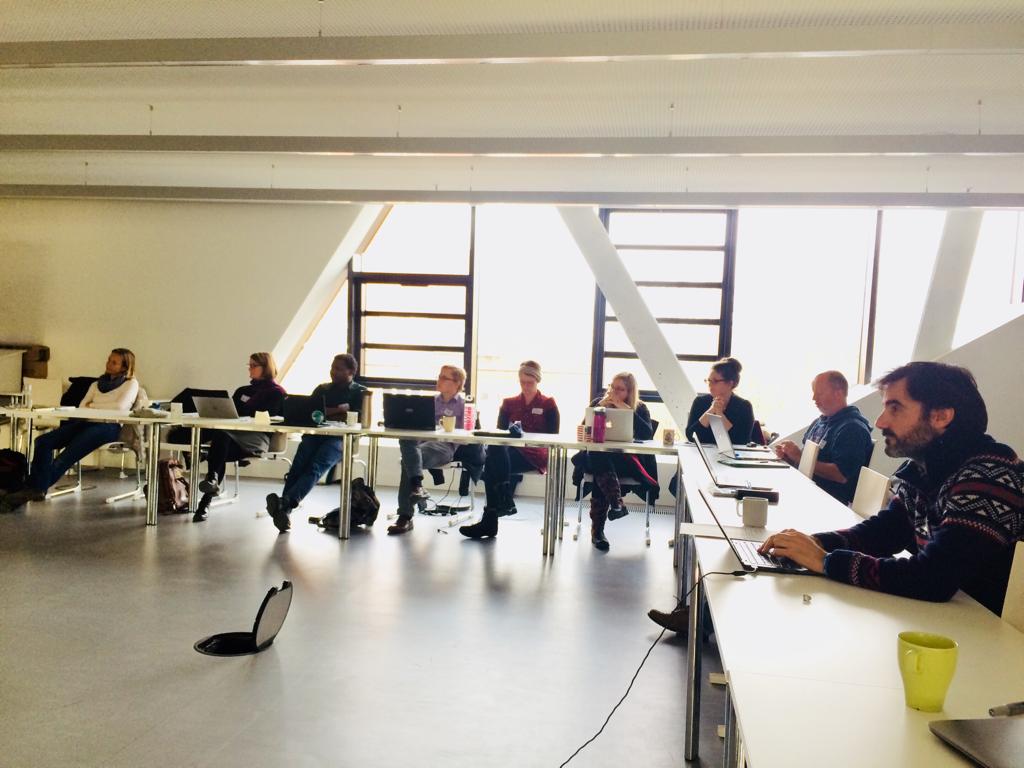
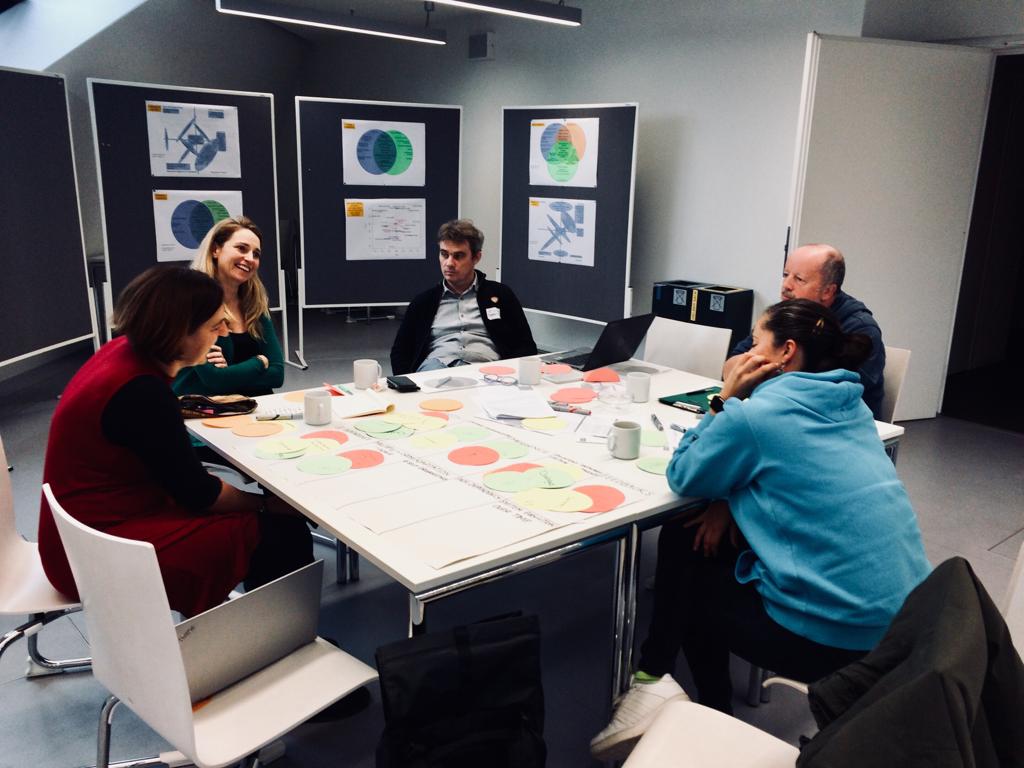
SES handbook authors discussing who best to engage with on the various methods and aspects of structuring the content that would make the book more accessible and usable to young researchers.
